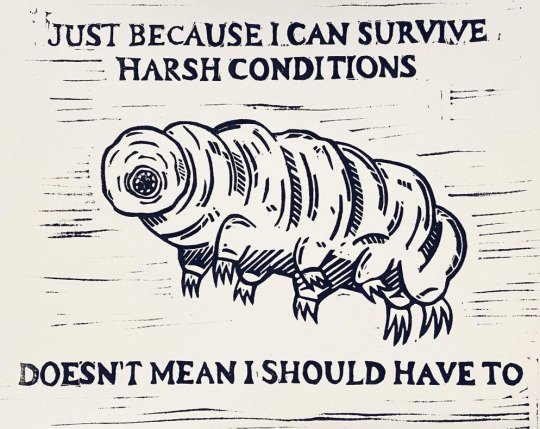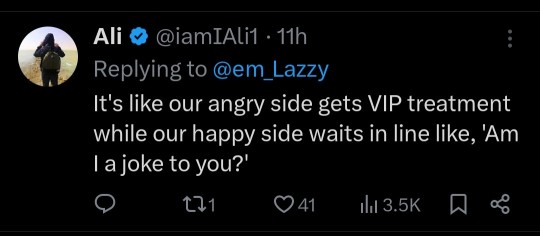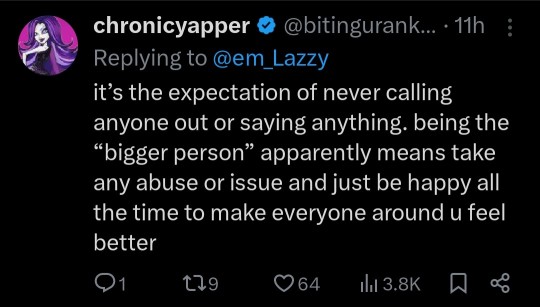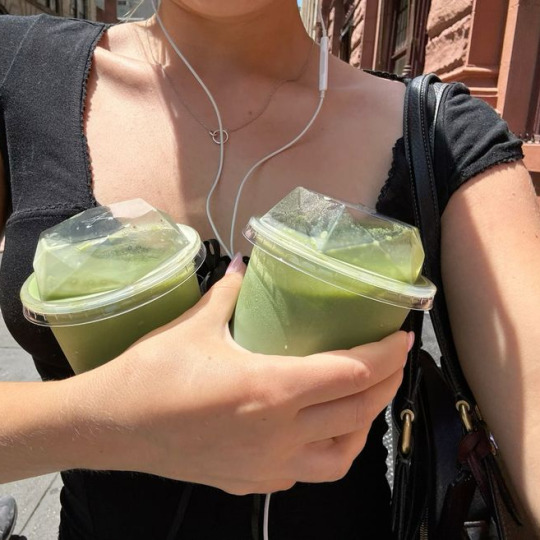#and emotional health
Explore tagged Tumblr posts
Text
absolutely losing my mind over sonic holding shadow bridal style
Im like a drug addict i need more

look at these bitch ass homosexuals
#sonic prime#sonic the hedgehog#if i dont get more of this in the later episodes im gonna go thru withdrawal symptoms#except this is crucial to my mental health#and emotional health#please i need it
11 notes
·
View notes
Text
I’m about to save you thousands of dollars in therapy by teaching you what I learned paying thousands of dollars for therapy:
It may sound woo woo but it’s an important skill capitalism and hyper individualism have robbed us of as human beings.
Learn to process your emotions. It will improve your mental health and quality of life. Emotions serve a biological purpose, they aren’t just things that happen for no reason.
1. Pause and notice you’re having a big feeling or reaching for a distraction to maybe avoid a feeling. Notice what triggered the feeling or need for a distraction without judgement. Just note that it’s there. Don’t label it as good or bad.
2. Find it in your body. Where do you feel it? Your chest? Your head? Your stomach? Does it feel like a weight everywhere? Does it feel like you’re vibrating? Does it feel like you’re numb all over?
3. Name the feeling. Look up an emotion chart if you need to. Find the feeling that resonates the most with what you’re feeling. Is it disappointment? Heartbreak? Anxiety? Anger? Humiliation?
4. Validate the feeling. Sometimes feelings misfire or are disproportionately big, but they’re still valid. You don’t have to justify what you’re feeling, it’s just valid. Tell yourself “yeah it makes sense that you feel that right now.” Or something as simple as “I hear you.” For example: If I get really big feelings of humiliation when I lose at a game of chess, the feeling may not be necessary, but it is valid and makes sense if I grew up with parents who berated me every time I did something wrong. So I could say “Yeah I understand why we are feeling that way given how we were treated growing up. That’s valid.”
5. Do something with your body that’s not a mental distraction from the feeling. Something where you can still think. Go on a walk. Do something with your hands like art or crochet or baking. Journal. Clean a room. Figure out what works best for you.
6. Repeat, it takes practice but is a skill you can learn :)
#deconstruction#ex christian#ex evangelical#agnosticatheist#deconstructing christianity#agnostic#ex religious#exevangelical#religious trauma#trauma#cptsd#therapy#life skills#leftist#self healing#healing is a process#Emdr#emdr therapy#ifs therapy#emotional regulation#emotional health#heading#trauma therapy#religious trauma syndrome#anti capitalist#humanism#coping mechanism#coping skills#cult survivor#deconvert
65K notes
·
View notes
Text
𝐈𝐧 𝐚𝐧𝐨𝐭𝐡𝐞𝐫 𝐮𝐧𝐢𝐯𝐞𝐫𝐬𝐞 𝐈’𝐦 𝐞𝐚𝐬𝐢𝐞𝐫 𝐭𝐨 𝐥𝐨𝐯𝐞 𝐚𝐧𝐝 𝐥𝐞𝐬𝐬 𝐝𝐢𝐟𝐟𝐜𝐮𝐥𝐭. 𝐈’𝐦 𝐬𝐨𝐫𝐫𝐲 𝐰𝐞 𝐡𝐚𝐝 𝐭𝐨 𝐦𝐞𝐞𝐭 𝐢𝐧 𝐭𝐡𝐢𝐬 𝐨𝐧𝐞.
excerpts from a book I’ll never write
#aesthetic#poetry#poets corner#writing#poets on tumblr#quotes#art#life#poem#poetscommunity#spilled writing#spilled poetry#spilled words#spilled thoughts#spilled ink#in another universe#maybe in another life#i’m sorry#past quotes#love quotes#pain quotes#relationship#friendship#difficult people#hurt/comfort#i’m so tired#emotions#mental health#sad poetry#poems and quotes
11K notes
·
View notes
Text

#mental health#self reflection#be yourself#self improvement#self help#new life#letting go#inspirational quotes#new beginnings#positivity#therapy#self therapy#survival#emotional support#life lessons
64K notes
·
View notes
Text
Breathe Easy with These Effective Homeopathic Cough Remedies
Introduction to Homeopathic Cough Remedies
When it comes to treating coughs, many are turning towards Homeopathic Cough Remedies for a natural and gentle solution. Unlike conventional medicines, which often carry side effects, homeopathic treatments offer a safe way to heal the body by stimulating its natural defense mechanisms.

What Makes Homeopathic Treatments Effective for Cough?
Homeopathy operates on the principle of "like cures like," suggesting that a substance causing symptoms in a healthy person can, in small doses, cure similar symptoms in a sick person. This philosophy makes homeopathic remedies particularly effective for the wide range of symptoms associated with coughs, from dry, ticklish coughs to wet, productive ones.
Cough Elixir Syrup: A Natural Solution
One standout product in the realm of Homeopathic Cough Remedies is the Cough Elixir Syrup from Ghai Homoeo Remedies. This syrup is formulated using time-tested ingredients known for their efficacy in treating coughs without the harsh effects associated with many over-the-counter options.
READ MORE BLOG :-
Benefits of Choosing Homeopathic Cough Remedies
Safety: Homeopathic remedies are renowned for their safety and minimal risk of side effects, making them suitable for children and adults alike.
Effectiveness: They address various cough symptoms by encouraging the body's natural healing processes.
Holistic Treatment: Homeopathy considers the whole person, including their physical, mental, and emotional health, ensuring comprehensive care.
How to Use Homeopathic Remedies for Best Results
For effective relief, follow the dosage instructions on the Cough Elixir Syrup. Typically, homeopathic remedies are taken several times a day during acute episodes, with doses reduced as symptoms improve.
Integrating Homeopathic Remedies into Your Daily Routine
Integrating homeopathic cough remedies into your healthcare regimen is straightforward. They can be used alongside other natural remedies, like honey and warm teas, to enhance cough relief.
Conclusion: Why Choose Ghai Homoeo Remedies?
Ghai Homoeo Remedies stands out for its commitment to natural and effective health solutions. Their Cough Elixir Syrup is a testament to their dedication to quality and patient safety. Whether you're dealing with a seasonal cough or something more persistent, their homeopathic syrup can provide the relief you need without the downsides of traditional medications.
Call to Action
Ready to give your cough the gentle, effective treatment it deserves? Visit www.ghaihomoeoremedies.com to learn more about our Homeopathic Cough Remedies and purchase your bottle of Cough Elixir Syrup today. Embrace a natural approach to health with Ghai Homoeo Remedies.
#which often carry side effects#What Makes Homeopathic Treatments Effective for Cough?#Homeopathy operates on the principle of "like cures like#in small doses#from dry#ticklish coughs to wet#productive ones.#Cough Elixir Syrup: A Natural Solution#Benefits of Choosing Homeopathic Cough Remedies#Holistic Treatment: Homeopathy considers the whole person#including their physical#and emotional health#ensuring comprehensive care.#How to Use Homeopathic Remedies for Best Results#For effective relief#like honey and warm teas#to enhance cough relief.
1 note
·
View note
Text
Once i'm detached, that's it. You will never get the same version of me, ever.
#text#personal#spilled thoughts#quotes#life quotes#life#feelings#emotions#heartbreak#mental health#self love#spilled words#spilled ink#dark acedemia#light academia#words#chipsy
8K notes
·
View notes
Text


though the movie might be cancelled, yuri on ice will live forever in our hearts. thank you yoi fandom, it's been real ♡
#yuri on ice#yoiedit#yoi#victuuri#ice adolescence#anime gif#*gifs#animangahive#dailyshounenai#userkarura#usergojoana#userhanyi#useralphonse#usertorichi#usermoonz#usericybtch#userheidi#usergokalp#userartless#homuras#himawaari#this is not goodbye this is still my house!!!#devastated but not surprised tbh but i still wanted to channel my emotions somehow and just. express how much this show means to me so here#this thank you goes out to u guys. the fandom#mappa can eat a brick btw <3#god i wish i could articulate just how special yoi is to me#it truly resonated with me like very few other pieces of media have (i can count them with one hand in fact)#it was sooooo revolutionary and ahead of its time not just in terms of queerness but also in terms of mental health#it truly changed me as a person and i just. really appreciate how earnest and kind it was above all#thank you yoi. you will be a part of me forever <3
11K notes
·
View notes
Text



12K notes
·
View notes
Text


his therapist woulda had a field day at their next appointment
#my art#doodle#fanart#resident evil 8#ethan winters#i think its so funny that he has a journal in re8. not only does he have a journal but he illustrates it. i dont know if capcom intended to#imply that ethan stops every now and then to jot down the horrors and the hour that the horrors occur my guess is prolly not#but now its there and it makes me laugh. i shouldnt laugh at his mental health journey but i am anyways#shoutout to people who journal i wish i was you but instead i draw a guy feelin my emotions for me#but im so happy the sun goess away at 5pm. truly immaculate. i miss snow. but we stay chillin#i made more dear diary doodles but these were my favs n they went well together#i changed the entry in the 2nd one though cause i thought it was funnier to me this way#i cut my hair too short again im not even sad about it anymore like whatever man#at least its out of my way. and my shower was SO fast i got to stand there 5ever and it was still only like 15 minutes#fantastic. there are so many joys in life. theres twice as many horrors but the joys are definitely there and they are definitely joyful#anyways thats the post stay warm n cozy out there gang
3K notes
·
View notes
Text
Please don't take my non-responding days offensive. I happen to get drained easily these days and I just need longer days to recharge, thank you.
#quotes#text#spilled thoughts#spilled words#emotions#words#thoughts#feelings#spilled emotions#facts#light academia#dark academia#life#mental health#dumblr
5K notes
·
View notes
Text
As I keep shouting into the void, pathologizers love shifting discussion about material conditions into discussion about emotional states.
I rant approximately once a week about how the brain maturity myth transmuted “Young adults are too poor to move out of their parents’ homes or have children of their own” into “Young adults are too emotionally and neurologically immature to move out of their parents’ homes or have children of their own.”
I’ve also talked about the misuse of “enabling” and “trauma” and “dopamine” .
And this is a pattern – people coin terms and concepts to describe material problems, and pathologization culture shifts them to be about problems in the brain or psyche of the person experiencing them. Now we’re talking about neurochemicals, frontal lobes, and self-esteem instead of talking about wages, wealth distribution, and civil rights. Now we can say that poor, oppressed, and exploited people are suffering from a neurological/emotional defect that makes them not know what’s best for themselves, so they don’t need or deserve rights or money.
Here are some terms that have been so horribly misused by mental health culture that we’ve almost entirely forgotten that they were originally materialist critiques.
Codependency What it originally referred to: A non-addicted person being overly “helpful” to an addicted partner or relative, often out of financial desperation. For example: Making sure your alcoholic husband gets to work in the morning (even though he’s an adult who should be responsible for himself) because if he loses his job, you’ll lose your home. https://www.nytimes.com/2022/07/08/opinion/codependency-addiction-recovery.html What it’s been distorted into: Being “clingy,” being “too emotionally needy,” wanting things like affection and quality time from a partner. A way of pathologizing people, especially young women, for wanting things like love and commitment in a romantic relationship.
Compulsory Heterosexuality What it originally referred to: In the 1980 in essay "Compulsory Heterosexuality and Lesbian Existence," https://www.journals.uchicago.edu/doi/abs/10.1086/493756 Adrienne Rich described compulsory heterosexuality as a set of social conditions that coerce women into heterosexual relationships and prioritize those relationships over relationships between women (both romantic and platonic). She also defines “lesbian” much more broadly than current discourse does, encompassing a wide variety of romantic and platonic relationships between women. While she does suggest that women who identify as heterosexual might be doing so out of unquestioned social norms, this is not the primary point she’s making. What it’s been distorted into: The patronizing, biphobic idea that lesbians somehow falsely believe themselves to be attracted to men. Part of the overall “Women don’t really know what they want or what’s good for them” theme of contemporary discourse.
Emotional Labor What it originally referred to: The implicit or explicit requirement that workers (especially women workers, especially workers in female-dominated “pink collar” jobs, especially tipped workers) perform emotional intimacy with customers, coworkers, and bosses above and beyond the actual job being done. Having to smile, be “friendly,” flirt, give the impression of genuine caring, politely accept harassment, etc. https://weld.la.psu.edu/what-is-emotional-labor/ What it’s been distorted into: Everything under the sun. Everything from housework (which we already had a term for), to tolerating the existence of disabled people, to just caring about friends the way friends do. The original intent of the concept was “It’s unreasonable to expect your waitress to care about your problems, because she’s not really your friend,” not “It’s unreasonable to expect your actual friends to care about your problems unless you pay them, because that’s emotional labor,” and certainly not “Disabled people shouldn’t be allowed to be visibly disabled in public, because witnessing a disabled person is emotional labor.” Anything that causes a person emotional distress, even if that emotional distress is rooted in the distress-haver’s bigotry (Many nominally progressive people who would rightfully reject the bigoted logic of “Seeing gay or interracial couples upsets me, which is emotional labor, so they shouldn’t be allowed to exist in public” fully accept the bigoted logic of “Seeing disabled or poor people upsets me, which is emotional labor, so they shouldn’t be allowed to exist in public”).
Battered Wife Syndrome What it originally referred to: The all-encompassing trauma and fear of escalating violence experienced by people suffering ongoing domestic abuse, sometimes resulting in the abuse victim using necessary violence in self-defense. Because domestic abuse often escalates, often to murder, this fear is entirely rational and justified. This is the reasonable, justified belief that someone who beats you, stalks you, and threatens to kill you may actually kill you.
What it’s been distorted into: Like so many of these other items, the idea that women (in this case, women who are victims of domestic violence) don’t know what’s best for themselves. I debated including this one, because “syndrome” was a wrongful framing from the beginning – a justified and rational fear of escalating violence in a situation in which escalating violence is occurring is not a “syndrome.” But the original meaning at least partially acknowledged the material conditions of escalating violence.
I’m not saying the original meanings of these terms are ones I necessarily agree with – as a cognitive liberty absolutist, I’m unsurprisingly not that enamored of either second-wave feminism or 1970s addiction discourse. And as much as I dislike what “emotional labor” has become, I accept that “Women are unfairly expected to care about other people’s feelings more than men are” is a true statement.
What I am saying is that all of these terms originally, at least partly, took material conditions into account in their usage. Subsequent usage has entirely stripped the materialist critique and fully replaced it with emotional pathologization, specifically of women. Acknowledgement that women have their choices constrained by poverty, violence, and oppression has been replaced with the idea that women don’t know what’s best for themselves and need to be coercively “helped” for their own good. Acknowledgement that working-class women experience a gender-and-class-specific form of economic exploitation has been rebranded as yet another variation of “Disabled people are burdensome for wanting to exist.”
Over and over, materialist critiques are reframed as emotional or cognitive defects of marginalized people. The next time you hear a superficially sympathetic (but actually pathologizing) argument for “Marginalized people make bad choices because…” consider stopping and asking: “Wait, who are we to assume that this person’s choices are ‘bad’? And if they are, is there something about their material conditions that constrains their options or makes the ‘bad’ choice the best available option?”
#mad pride#neurodiversity#ableism#ageism#youth rights#liberation#disability rights#classism#capitalism#mental health culture#pop psychology#feminism#emotional labor
7K notes
·
View notes
Text

Lonely nights.
#rain#rainy#raining#rainyday#rainy day#rainydays#rainy days#gloomy#sad#depressed#love#alone#lonely#loner#aesthetic#life#lost#memories#mentalhealth#mental health#mental health awareness#mentalhealthawareness#emotional#emotions#feelings#anxiety#depression#sad quotes#rainyweather#love quotes
3K notes
·
View notes
Text
𝐭𝐡𝐞 𝐨𝐧𝐥𝐲 𝐠𝐥𝐨𝐰 𝐮𝐩 𝐠𝐮𝐢𝐝𝐞 𝐲𝐨𝐮'𝐥𝐥 𝐞𝐯𝐞𝐫 𝐧𝐞𝐞𝐝.




first level
start with the basics. eat healthier, exercise daily (this can be a 10 minute walk or an hour work out, doesn't matter; just do something) sleep 7-9 hours, shower every day, and clean your space.
second level
journal daily. start simple with talking about your day or writing about your favourite things.
listen to subliminals at night. spotify has a lot of playlists.
meditate with affirmations daily. i listen to thewizardliz's affirmation video while focusing on my breathing and relaxing my body.
speak kind to yourself and others. don't talk down on yourself, try not to judge, remind yourself that it's okay to make mistakes...
read books instead of doomscrolling. replace your social media screentime with reading a book.
make time for the people and things you love. even though you might be really busy with school or work, don't forget to be present. plan trips with your friends, eat dinner with your family, play that instrument that you liked so much, participate in team sports, be creative, etc.
third level
invest in a good skincare & oral care routine. this does not have to be expensive at all. i use the cerave cleanser and moisurizer and exfoliate 2 times a week. if you need to, use more but be careful it aligns with your skintype! brush your teeth two to three times a day, use a tongue scraper, chew gum, go to the dentist/orthodontist, whiten your teeths.
experiment with personal style. this includes hair, fashion, makeup, accessorizing, music, etc... don't follow trends if it's not what you actually like. have fun with it (for example, go shopping with your friends and try on stuff you would never glance at!)
shave your body. i personally use an epilator on my legs and a shaver under my arms. my mama advices me to not shave my arms or on my tummy, but honestly do what you think is best here.
pluck your eyebrows. i only pluck hairs that is going "outside" the shape of my eyebrows and just keep them looking mantained.
keep your nails clean. don't bite and don't get dirt underneath them. you can also polish them but you obviously don't have to.
these things are usually more expensive
get your nails done. in my experience it is around the €40-€80 to get them done in a salon. at home it's way less expensive because you only have to buy the equipment once and can use it for more than one time. i prefer doing them at home!
get an eyelash lift. i have gotten an lift for €35 but i've also seen people paint and lift them for more. it basically just lifts up your eyelashes and makes it look like your wearing mascara 24/7.
fake tan your body. i honestly have never done this, but after research, i found out it isn't damaging to your skin at all. you can buy self tanner at your local drugstore and at tanning salons.

#glow up guide#aesthetic#self care#self love#mental health#wellness#healthy lifestyle#law of attraction#glow up#self improvement#self development#wellness journey#health and lifestyle#wellbeing#emotional wellness#coquette aesthetic#it girl#it girl aesthetic#it girl guide#that girl#that girl aesthetic#that girl moodboard#becoming that girl#becoming her
3K notes
·
View notes

